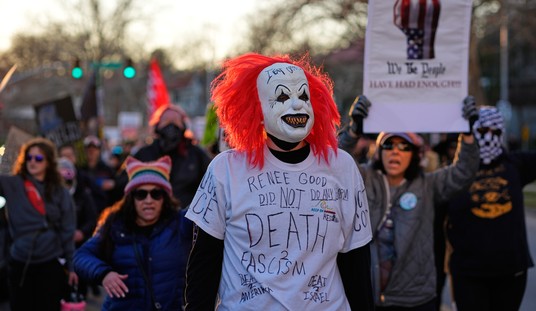The death of former billionaire Boris Berezovsky, which the British police are treating as ‘unexplained’ has thrown a side-light on connections between money and international politics. “The one-time Kremlin powerbroker fell out with Putin and sought political asylum in Britain in the early 2000s. He has lived in the U.K. ever since.”
That is, until he died.
He had been reported by Russian media to have fallen on hard times. Down to selling a Warhol painting for $50,000. Agence Presse France quotes Kremlin sources which say Berezovsky begged Putin for pardon before his death, an image which completed the picture of his downfall. “He asked Putin for forgiveness for his mistakes and asked him to obtain the opportunity to return to the motherland” a Kremlin spokesman said.
Where have we seen scenes like this before?
Oh that’s right. Through all of human history. Dramas with oligarchs, secret service action and mysterious deaths may sound like the stuff from a “Coffin for Dimitrios” on steroids. Perhaps that’s exactly right. Michael Weiss at Now strongly suggests that the financial crisis in Cyprus is at least partially about the Russian funding of Assad in Syria.
Russian wealth now accounts for a third of Cyprus’ entire banking sector, with Russian commercial, institutional, and individuals’ deposits – some 31 billion USD – exceeding Cyprus’ GDP. Much of this money is thought to have been stolen or laundered. There are, according to a leaked and much-discussed German intelligence assessment, around 40,000 shell companies in Cyprus, all registered with no background checks as to where their capital came from …
What the international financial press has missed in this frenzied geopolitical comedy is how intimately tied up the Cyprus-Russian financial nexus is with the unraveling nightmare in Syria. According to the Wall Street Journal, one of the most vulnerable Russian financial institutions to be affected by a possible Cypriot default is VTB, the second largest bank in Russia. …
Subsequent to the Syrian uprising, Assad’s former fiance minister Mohammed al-Jleilati praised Moscow for having “given us a hand, especially in the financial sphere.” It won’t surprise you to learn that VTB was one of the banks offering fraternal assistance….
Bivol, a Bulgarian news outlet, produced what it claimed was a hacked communique between a Syrian security branch and Sergey Avakov, a VTB executive. The message, which is undated, appears to show Damascus raising its deposits to over 2 billion Euros …
Last June, I discovered another Russian-Cyprus connection with immediate impact on events in Syria. Just as the Houla massacre was getting underway, a Russian ship called the Professor Katsman was pulling into the port at Tartous. This vessel, which Western diplomats alleged was transporting arms to the Assad regime, was owned by a Russian-Dutch outfit called Universal Cargo Logistics Holdings (UCL)… UCL Holdings controlled the ship through a Matryoshka doll-like series of offshore shell companies. One of these was based in Cyprus.
And there we were thinking it was about stability, transparency, ratios and responsible balance sheets when it was all about payoffs. It wouldn’t be the first time that money and politics went hand in hand.
The inference of Weiss’ article is clear. Cyprus isn’t all about Cyprus, not completely, at least. In the shadowy background move even more elusive figures. Beggar Cyprus and you beggar the Russian secret service in the Mediterranean; squeeze the accounts and you pinch shut Assad’s lifeline.
Forget about armies crossing borders under the cover of artillery barrages. Maybe this is how modern war is conducted. Via bits sent over fiber optic cables; or via drones firing missiles from the sky, or perhaps via bathtubs that suddenly prove fatal to their Russian oligarch bathers.
And the stakes were never higher. Prime Minister Netanyahu of Israel set his face and made an abject apology to Erdogan of Turkey for intercepting a vessel bound for Gaza. The reason? Syria.
Benjamin Netanyahu wrote on his Facebook page Saturday that Israel and Turkey, which border Syria, need to communicate with each other over the Syrian crisis.
“The fact that the crisis in Syria intensifies from moment to moment was the main consideration in my view,” Netanyahu wrote.
Netanyahu phoned his Turkish counterpart Friday and apologized for a botched raid on a Gaza bound flotilla in 2010 that left eight Turks and one Turkish-American dead. Turkey demanded an apology as a condition for restoring ties. Netanyahu had until now refused to apologize, saying Israeli soldiers acted in self-defense after being attacked by activists.
He ate crow because he had to. The conflagration in Syria is now too hot for mere personal preferences to play any part.
So how will the squeeze on Russia turn out? As in most things bellicose, the traffic goes both ways. Weiss notes that Russia can retaliate by using the Cyprus crisis to threaten the Euro. By pulling on the yarn even harder maybe Russia can get not just Cyprus, but Greece, Spain and Italy to unravel.
Nothing would please Putin more than to have Angela Merkel grovel like Berezovsky. Weiss writes: “Just as I was getting used to thinking of Cyprus as the Mediterranean clime where Hezbollah agents go to spy on ‘the Jews’ and Rami Makhlouf is granted citizenship, I awaken to the fact that future of the eurozone may in fact depend on the good graces of Vladimir Putin.”
Nice Euro you have there; it would be a shame if anything happened to it.
And indeed the gyre is widening. There are rumors that Hezbollah is training ‘thousands’ of fighters in Lebanon’s Bekaa Valley to intervene on Assad’s side. Meanwhile, Lebanon has been plunged into turmoil by the Syrian conflict because it feeds into and exacerbates the tensions within Lebanon itself.
It’s a sad world. The enduring appeal of a “Coffin for Dimitrios” as Sarah Weinman observed, was its rueful exposition of the role of perfidy and betrayal in human affairs.
“Coffin” was published just before Germany declared war on Poland, and at the time the strongly left-leaning Ambler believed the Soviet Union would be a British ally, not enemy—which is why such other Ambler novels as “Cause for Alarm” (1937), “Epitaph for a Spy” (1938) and “Journey Into Fear” (1940) feature Russian and Ukrainian characters whose initially opaque motivations couch sympathy for British interests. Ambler’s illusions on that front were shattered by the Nazi-Soviet Pact
Ambler had expressed the hope, through his literary characters that unalloyed idealism might somehow win through.
“One goes through life like a flower with its face turned to the sun, ever seeking, ever seeking, ever hoping, wanting to trust others, but afraid to do so. How much better if we trusted one another, if we saw only the good things, the finer things in our fellow creatures! How much better if we were frank and open, if we went on our ways without the cloak of hypocrisy and lies that we wear now.”
How much better if Cyprus were as the tourist brochures described it. How much better for Ambler if Stalin had been the leader he imagined; if the Soviet Union were a place of brotherly love, festivals and understanding. Too bad it turned out to be just another government.
It’s always a sad to discover that beneath the posters, the soaring speeches and the moving symbolism that the need for money, hatred, lust and power still animates the human breast. The fundamental things apply, as time goes by.
The Three Conjectures at Amazon Kindle for $1.99
Storming the Castle at Amazon Kindle for $3.99










Join the conversation as a VIP Member